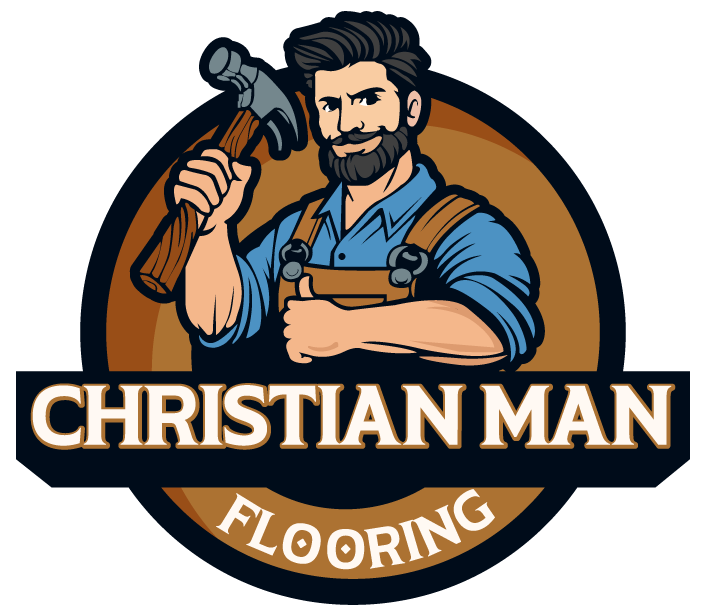Get Your Hardwood
Flooring Consultation
Christian Man Flooring carries the top hardwood flooring brands in San Diego County. Explore our product catalog below or schedule a FREE in-home consultation.
Improve Your Home With Hardwood Flooring for your kitchen upgrade, living room refresh, dream renovation .
Choosing between solid and engineered hardwood depends on your space, lifestyle, and budget. At Christian Man Flooring, we’re here to guide you every step of the way—from helping you choose the right material to expert installation that’s built to last. Whether you’re renovating one room or your entire home, you can count on us to treat your project like it’s our own.
Hardwood vs. Engineered Hardwood:
Which Is Right for You?
Understand the differences so you can choose the right fit for your lifestyle, budget, and space.
At Christian Man Flooring, one of the most common questions we get is: “What’s the difference between hardwood and engineered hardwood?” Both are beautiful, durable, and add value to your home—but they each have their own unique strengths. Here’s what you need to know to help you choose the best flooring for your space.
Solid Hardwood
- Made from a single piece of wood (¾” thick)
- Can be refinished many times
- Develops natural patina with age
- Higher cost (materials + labor)
- Sensitive to moisture & heat
- Nail-down installation only
- Classic widths & lengths
- Dense, warm feel underfoot
Engineered Hardwood
- Top hardwood layer over plywood/fiberboard
- Can be refinished once or twice
- Looks nearly identical to solid wood
- More budget-friendly
- More resistant to moisture & temperature
- Can be nailed, glued, or floated
- Wider range of plank sizes
- Stable, versatile, and low-maintenance
Choosing between solid and engineered hardwood depends on your space, lifestyle, and budget. At Christian Man Flooring, we’re here to guide you every step of the way—from helping you choose the right material to expert installation that’s built to last. Whether you’re renovating one room or your entire home, you can count on us to treat your project like it’s our own.
The Basics
Solid hardwood is exactly what it sounds like—flooring made from a single piece of natural wood, typically about ¾” thick. It’s known for its timeless beauty, rich character, and ability to be sanded and refinished multiple times over its life.
Engineered hardwood, on the other hand, is made from a real hardwood top layer that’s bonded over multiple layers of plywood or fiberboard. It’s designed for greater stability and resistance to changes in moisture and temperature.
Appearance
Both options deliver a beautiful wood look, and to the untrained eye, they can look nearly identical once installed. Solid hardwood tends to develop more character as it ages, giving it a slightly more natural patina over time. Engineered hardwood comes in a wide variety of styles and finishes, and because of modern technology, it’s often hard to tell the difference.
Cost
Solid hardwood usually comes with a higher price tag—both in materials and labor—due to the wood content and the more involved installation process. Engineered hardwood is typically more budget-friendly, making it a great choice for homeowners looking for real wood at a lower price point.
Lifespan
When it comes to longevity, solid hardwood is the winner. It can last 30 to 100 years or more if properly cared for, and it can be refinished several times throughout its life. Engineered hardwood generally lasts 20 to 40 years and may only be refinished once or twice, depending on the thickness of the top wood layer.
Comfort & Sound
Both floors feel great underfoot, but solid hardwood tends to have a slightly warmer, denser feel and a more natural sound when walked on. Engineered hardwood may sound a little more hollow without a proper underlayment, but when installed correctly, the difference is often minimal.
Water & Heat Resistance
Solid hardwood can be sensitive to moisture and changes in temperature—it can expand, contract, or even warp in extreme conditions. That’s why it’s not recommended for basements, bathrooms, or over concrete subfloors. Engineered hardwood is much more stable and resistant to humidity and heat, making it a smart option for areas where solid wood might struggle.
Installation Types
Solid hardwood typically needs to be nailed or stapled to a wood subfloor, which means it’s best for above-grade installations. Engineered hardwood is more versatile—it can be nailed, glued, or even floated over various subfloors, including concrete. This flexibility makes it ideal for modern homes with open layouts and different subfloor materials.
Size & Variety
Engineered hardwood tends to come in a wider variety of plank widths and lengths, offering more options for design and layout. Solid hardwood is more limited in this regard, though it still offers plenty of classic choices.
Maintenance
Both flooring types are relatively easy to maintain with regular sweeping and occasional mopping using a wood-safe cleaner. However, solid hardwood can require more long-term care, especially in humid environments. Engineered hardwood is generally more stable and lower-maintenance over time, especially in busy households or homes with pets and kids.
Let’s Find the Right Fit for You
Choosing between solid and engineered hardwood depends on your space, lifestyle, and budget. At Christian Man Flooring, we’re here to guide you every step of the way—from helping you choose the right material to expert installation that’s built to last. Whether you’re renovating one room or your entire home, you can count on us to treat your project like it’s our own.
